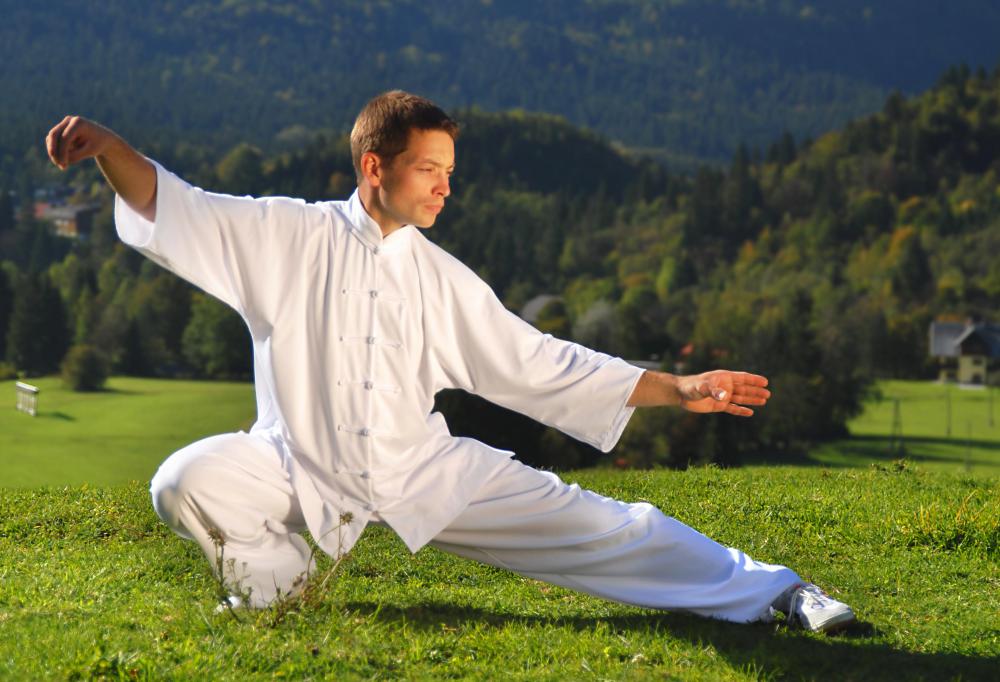At WiseGEEK, we're committed to delivering accurate, trustworthy information. Our expert-authored content is rigorously fact-checked and sourced from credible authorities. Discover how we uphold the highest standards in providing you with reliable knowledge.
How can I Cope with Anxious Feelings?
Anxious feelings can plague us all from time to time. It’s not uncommon to worry about things like upcoming tests, job performance, the behavior or well-being of a child, or even patterns in our own behavior that are disturbing. While we all may worry or feel anxious occasionally, some people are more bogged down with anxiety, and find they cope with anxious feelings by changing their behavior. These changes may be for the better; if you feel anxious about your weight and start eating a healthy diet and exercising you’re probably benefiting yourself, putting anxious feelings to rest. But changes can also be for the worse; you suddenly avoid things in your life because participation in these things makes you so anxious.
Anxiety can cause sleeplessness, difficulty maintaining relationships, overmedicating with food, drink, sex and et cetera, and as mentioned, behavior avoidance. In severe cases, anxiety can cause us to have panic attacks, which can be challenging to overcome, and to many people may feel, when the attack is in progress, like they are dying or having a heart attack. Yet even anxiety that is simply making it hard to sleep at night is enough to have an overwhelmingly negative effect on your life.

There are a number of ways to cope with anxious feelings. If these feelings are pervasive, depriving your from sleep, changing the way you live your life, or causing panic attacks, it’s a good idea to seek help. First, you may want to see a therapist, since there are many helpful therapies to cope with anxious feelings. One of the chief advocated methods is called cognitive behavioral therapy (CBT), which can help you think about and contextualize your feelings. Anxiety may often be masking core beliefs or traumatic events, or deep sadness. Getting at what’s behind the anxiety with CBT has been proven effective for many.

When anxious feelings are still not put to rest with therapy alone, you may be suffering from generalized anxiety disorder or panic disorder. With help from a psychiatrist, you can find medications that will help regulate brain chemicals creating overly anxious responses to daily living. Medication and CBT are used together to cope with anxious feelings caused by a true medical disorder.

For mild feelings of anxiety, you may find relief talking to a friend, a school counselor, your parents, a pastor, or a trusted family friend. It can also help to consider how you are responding to mild anxiety. If anxious feeling cause you to hide in your room and not go to work, you’re probably only going to get more anxious. In the absence of true anxiety disorder, there are some things that can help cope with distressing feelings.

First, eat a healthy diet and avoid overeating to calm anxiety. Second, do not medicate anxiety with illegal drugs or drinking, which can quickly exacerbate your problem. Third, try to get exercise everyday. A 30-minute to hour-long walk helps stimulate production of chemicals that can make you feel more relaxed, and help you sleep better at night. Meditative exercises like Tai Chi and yoga can also be helpful, and many people find prayer, meditation or deep breathing exercises very calming to the mind.

When these methods don’t help you cope with anxious feelings, do see a therapist. There is help, no matter how bad anxiety is making you feel. Reaching out for help, and even using medication if needed is not weakness, but instead is a strong way to reclaim your life and get rid of pervasive anxiety.
AS FEATURED ON:
AS FEATURED ON:





















Discussion Comments
One way I've found to cope with anxiety and depression is to keep moving. If I start getting too sedentary at home, I'll start getting into a loop of anxiety that will turn into a full-blown panic attack. It could be a trip to the public library or a long walk around the block or even a shopping excursion, but I find that getting out of the house really helps with anxiety and depression. If I feel a panic attack coming on at work, I will make up an excuse and take a walk around the parking lot if I can.
As far as medications are concerned, I have been very reluctant to get on any prescription drugs to cope with anxious feelings. I have found some homeopathic herbal blends at a local health food store that are formulated especially for anxiety and stress. If I take two capsules, I'll feel much better in about twenty minutes.
One thing I do to cope with anxious feelings is reach out to other people who have already faced the issue that's making me anxious. If I'm about to take a very important test for my job, for instance, I'll seek out co-workers who have already taken it and ask a lot of questions. I realize they can't tell me every answer on the test, but it helps to know what to expect when the time arrives. I find that much of my anxiety is triggered by fear of the unknown.
Post your comments